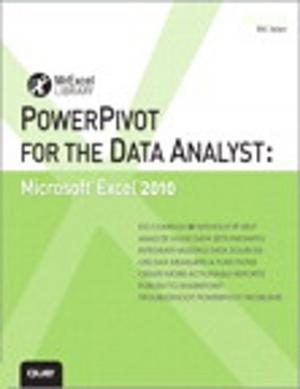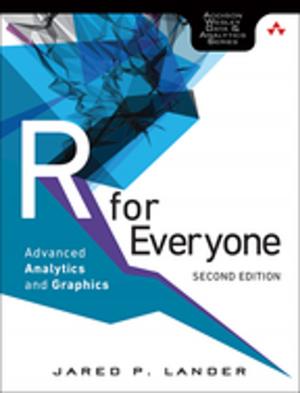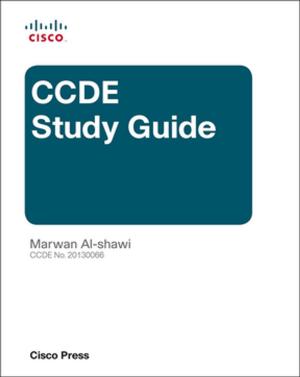Getting Started with Data Science
Making Sense of Data with Analytics
Business & Finance, Economics, Statistics, Nonfiction, Computers, Database Management| Author: | Murtaza Haider | ISBN: | 9780133991239 |
| Publisher: | Pearson Education | Publication: | December 14, 2015 |
| Imprint: | IBM Press | Language: | English |
| Author: | Murtaza Haider |
| ISBN: | 9780133991239 |
| Publisher: | Pearson Education |
| Publication: | December 14, 2015 |
| Imprint: | IBM Press |
| Language: | English |
Master Data Analytics Hands-On by Solving Fascinating Problems You’ll Actually Enjoy!
Harvard Business Review recently called data science “The Sexiest Job of the 21st Century.” It’s not just sexy: For millions of managers, analysts, and students who need to solve real business problems, it’s indispensable. Unfortunately, there’s been nothing easy about learning data science–until now.
Getting Started with Data Science takes its inspiration from worldwide best-sellers like Freakonomics and Malcolm Gladwell’s Outliers: It teaches through a powerful narrative packed with unforgettable stories.
Murtaza Haider offers informative, jargon-free coverage of basic theory and technique, backed with plenty of vivid examples and hands-on practice opportunities. Everything’s software and platform agnostic, so you can learn data science whether you work with R, Stata, SPSS, or SAS. Best of all, Haider teaches a crucial skillset most data science books ignore: how to tell powerful stories using graphics and tables. Every chapter is built around real research challenges, so you’ll always know why you’re doing what you’re doing.
You’ll master data science by answering fascinating questions, such as:
• Are religious individuals more or less likely to have extramarital affairs?
• Do attractive professors get better teaching evaluations?
• Does the higher price of cigarettes deter smoking?
• What determines housing prices more: lot size or the number of bedrooms?
• How do teenagers and older people differ in the way they use social media?
• Who is more likely to use online dating services?
• Why do some purchase iPhones and others Blackberry devices?
• Does the presence of children influence a family’s spending on alcohol?
For each problem, you’ll walk through defining your question and the answers you’ll need; exploring how
others have approached similar challenges; selecting your data and methods; generating your statistics;
organizing your report; and telling your story. Throughout, the focus is squarely on what matters most:
transforming data into insights that are clear, accurate, and can be acted upon.
Master Data Analytics Hands-On by Solving Fascinating Problems You’ll Actually Enjoy!
Harvard Business Review recently called data science “The Sexiest Job of the 21st Century.” It’s not just sexy: For millions of managers, analysts, and students who need to solve real business problems, it’s indispensable. Unfortunately, there’s been nothing easy about learning data science–until now.
Getting Started with Data Science takes its inspiration from worldwide best-sellers like Freakonomics and Malcolm Gladwell’s Outliers: It teaches through a powerful narrative packed with unforgettable stories.
Murtaza Haider offers informative, jargon-free coverage of basic theory and technique, backed with plenty of vivid examples and hands-on practice opportunities. Everything’s software and platform agnostic, so you can learn data science whether you work with R, Stata, SPSS, or SAS. Best of all, Haider teaches a crucial skillset most data science books ignore: how to tell powerful stories using graphics and tables. Every chapter is built around real research challenges, so you’ll always know why you’re doing what you’re doing.
You’ll master data science by answering fascinating questions, such as:
• Are religious individuals more or less likely to have extramarital affairs?
• Do attractive professors get better teaching evaluations?
• Does the higher price of cigarettes deter smoking?
• What determines housing prices more: lot size or the number of bedrooms?
• How do teenagers and older people differ in the way they use social media?
• Who is more likely to use online dating services?
• Why do some purchase iPhones and others Blackberry devices?
• Does the presence of children influence a family’s spending on alcohol?
For each problem, you’ll walk through defining your question and the answers you’ll need; exploring how
others have approached similar challenges; selecting your data and methods; generating your statistics;
organizing your report; and telling your story. Throughout, the focus is squarely on what matters most:
transforming data into insights that are clear, accurate, and can be acted upon.















